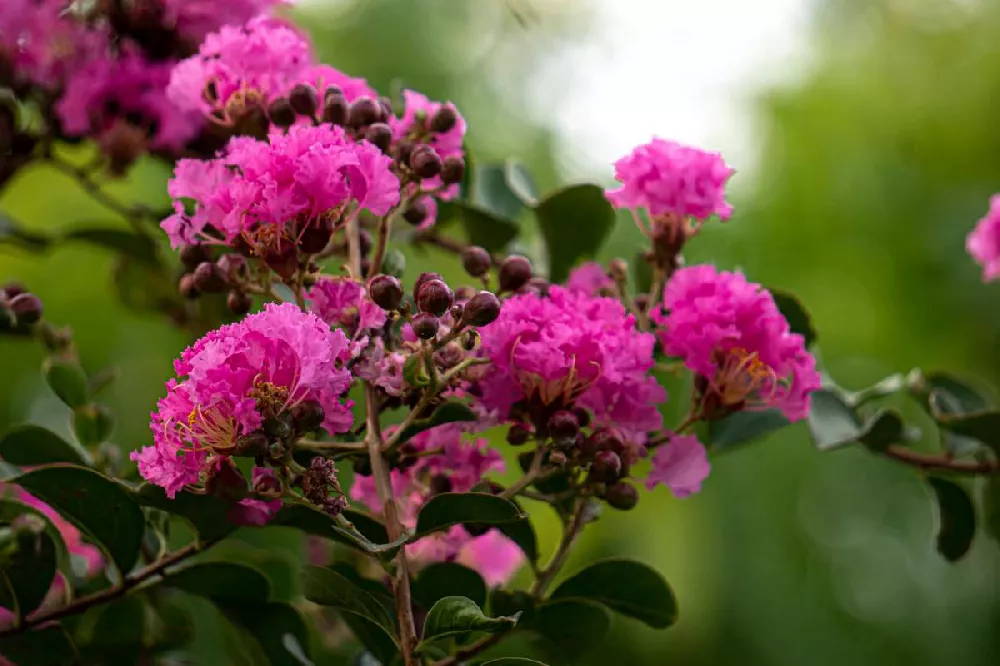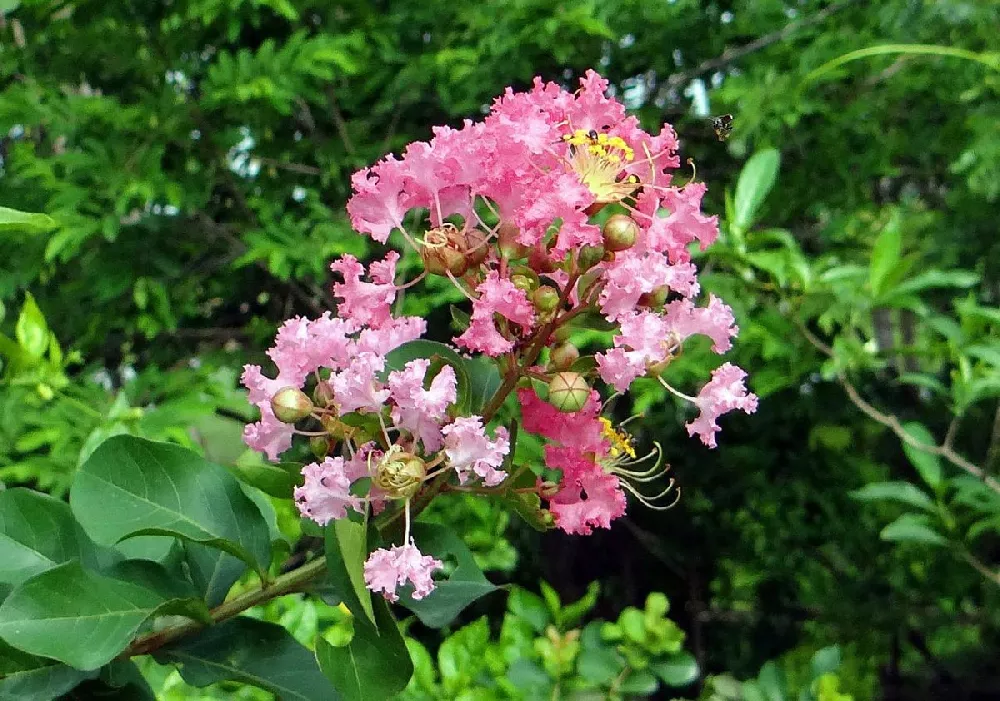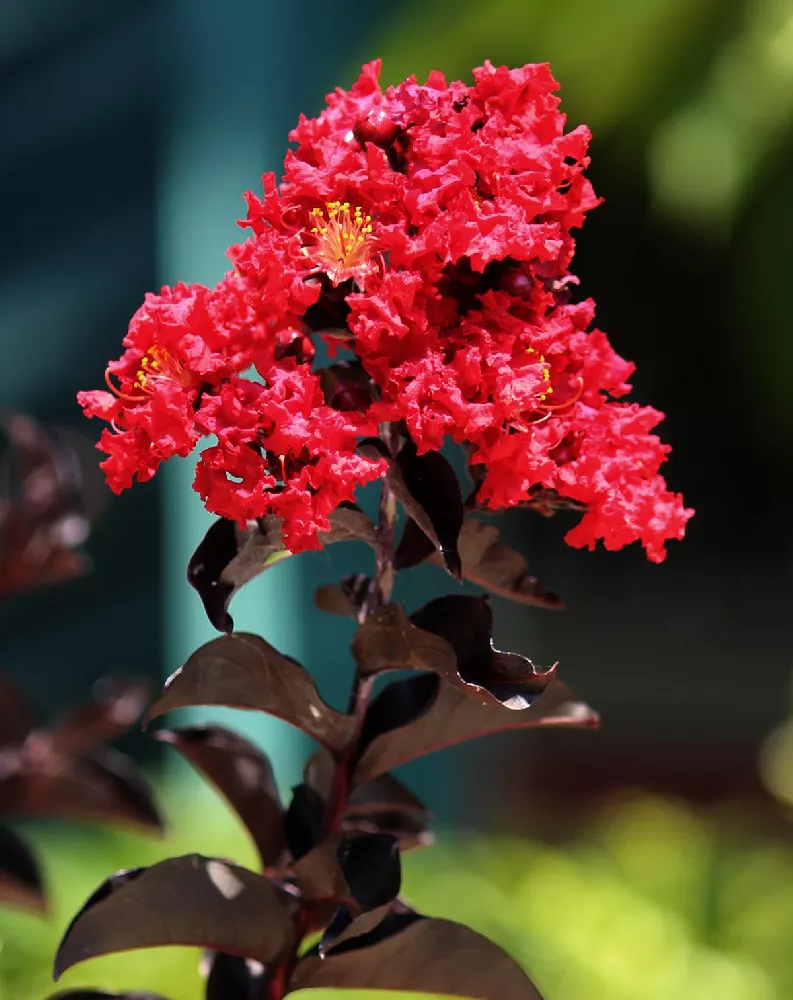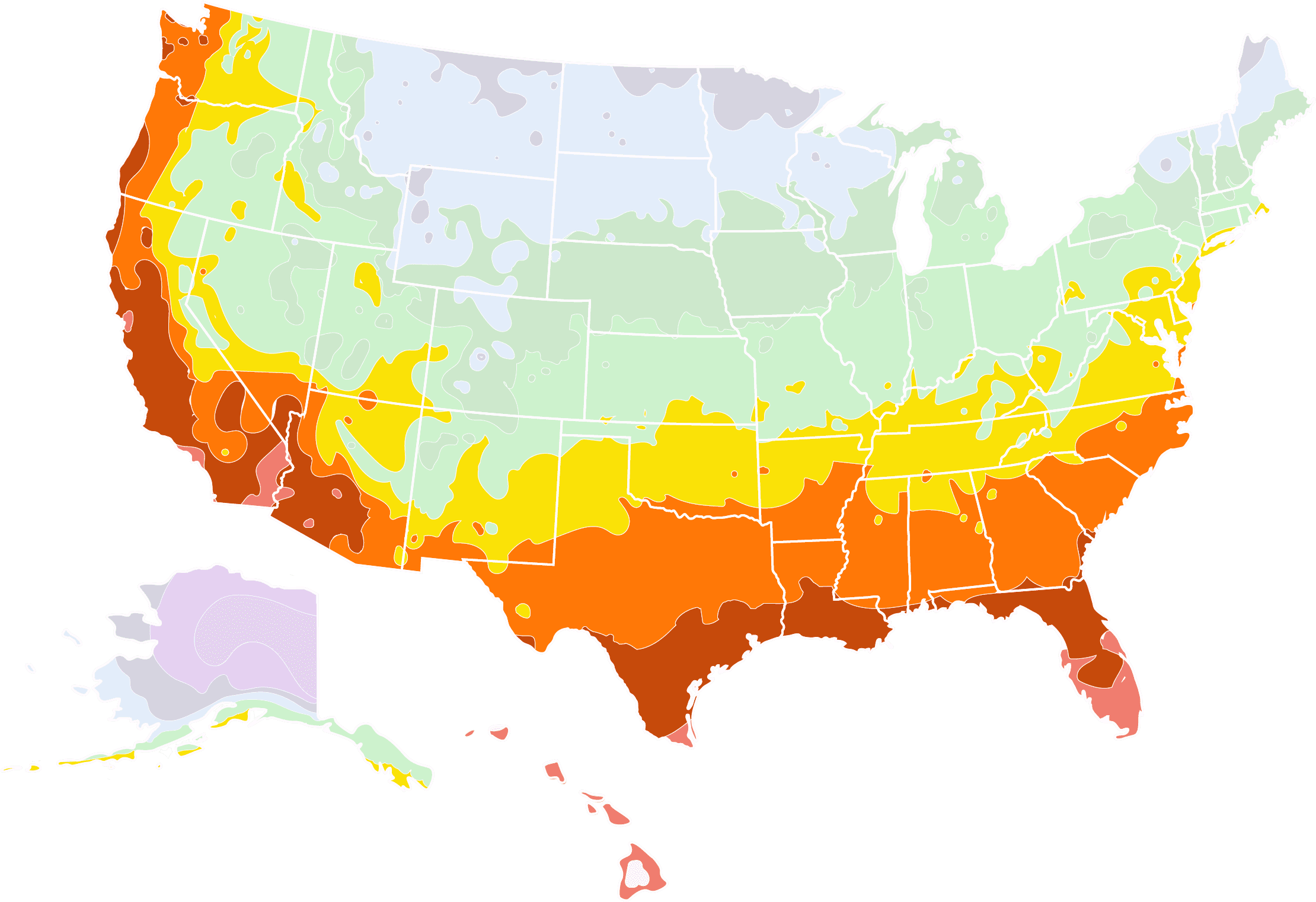- Home >
- Flowers >
- Trees and Plants with White Flowers >
- Natchez Crape Myrtle
Natchez Crape Myrtle for Sale - Buying & Growing Guide
- Ships in 1-2 days
- 1-Year Warranty Eligible
- Pots or accessories are not included unless specified in the product options.
Shipping Details:
Products shipped through FastGrowingTrees.com. Once your order is shipped, you’ll receive an email with a tracking number and estimated delivery date. Most orders will ship immediately.
Among all the admirable crape myrtles that you can find in the nursery trade, the Natchez crape myrtle is one of the most popular varieties. This plant, Lagerstroemia 'Natchez,' blooms with lovely white flowers and grows taller than many crape myrtles, often growing as a small tree that reaches a height of 20 feet or more. Along with those brilliant flowers, the Natchez crape myrtle has other ornamental features as well, including exfoliating bark and a set of glossy green leaves that take on fiery hues in the fall.
- The Natchez crape myrtle blooms with white flowers.
- It has beautiful exfoliating bark.
- Its glossy green leaves turn red and orange in the fall.
Plant Care
Sunlight

Full sun, about six hours of light or more, is ideal. Partial shade may work too.
Watering
Monitor soil moisture and provide water when the first few soil layers have dried out.
Fertilizing

Use a general-purpose fertilizer once per year during the early spring months.
Planting and Care
Planting instructions
To set the ideal growing conditions for your Natchez crape myrtle tree, you should begin by finding an area that receives full sunlight and has moist, well-draining soils. Typically, the best soils for this plant will have an acidity that falls between 6 and 6.5 on the pH scale. To plant your tree, begin by digging a hole that is as deep as the root ball is tall and at least twice as wide. Water your Natchez crape myrtle while you backfill and complete the job by layering mulch over the planting area.
Watering and nutrients
Mature Natchez crape myrtle trees have admirable drought tolerance and may be able to survive for relatively long periods without supplemental water. In fact, overwatering is a far more prevalent risk for this plant than underwatering. The best approach for watering this plant is to observe the soil moisture and provide a deep watering when the first few inches of soil have dried out. Fertilizing a Natchez crape myrtle is even easier, as all you’ll need to do is apply an all-purpose fertilizer once per year during early spring.
Pollination
With the right growing location and care, your Natchez crape myrtle tree will bloom with many white flowers each year. Those flowers contain plenty of nectar, which will attract bees and other insects. Those insects are responsible for carrying pollen from one flower to another to facilitate pollination. Since crape myrtles are self-pollinating, you won’t need more than one plant in order for pollination to occur. When pollination is successful, the tree will produce a small brown capsule that carries the crape myrtle’s seeds.
Pruning
The best time of year to prune your Natchez crape myrtle tree is during the late winter and early spring months. Since these plants bloom on new growth, pruning early in the year does not come with the risk of removing the coming season’s blooms. You may also choose to prune during the bloom period, which occurs throughout summer and fall. During this time, you can remove spent blooms, which often motivates the Natchez crape myrtle to produce additional flowers.
Pests, diseases, and animals
Most crape myrtles have some issues with pests and diseases, including the Natchez crape myrtle. However, this crape myrtle does show some improved pest resistance compared to other crape myrtle varieties. The Natchez crape myrtle is especially resistant to aphids. However, many other complications can arise with this plant. Most notably, powdery mildew, mold, blight, and black spots can all occur. At times, these issues can be related to overwatering or an overcrowded canopy that does not allow for proper air circulation.
Achieving maximum results
Typically, the Natchez crape myrtle will provide lovely foliage colors in the fall. However, there are some instances in which this may not be the case. For example, if you experience an early frost, the leaves on your tree may die and fall to the ground before changing colors. Also, Natchez crape myrtles that grow in the hotter parts of their growing range may show somewhat muted fall colors. Additionally, you should be wary of overfertilizing your Natchez crape myrtle, as it can lead to excessive foliage development in lieu of flower production.
FAQs
How long does the Natchez crape myrtle live?
How large does a Natchez crape myrtle grow?
Crape myrtles come in many different varieties and in several different sizes. In fact, you'll find there are dwarf crape myrtles, crape myrtles that grow as shrubs, and crape myrtles that grow as trees. The Natchez crape myrtle belongs to that final group. At maturity, this plant takes the form of a small to a mid-sized tree. In some cases, this tree may reach a height of 30 feet or more. However, a mature height of 20 feet is more common.
What color is the bark of a Natchez crape myrtle?
The flowers of this plant gain most of the credit. However, the bark of the Natchez crape myrtle is quite impressive as well. Not only does this bark take on a captivating exfoliating pattern after about three or four years of growth, but it also shows rich colors, including varying shades of cinnamon brown. That lovely bark allows the Natchez crape myrtle to add visual appeal to your garden all year long.
Compare Similar Products
You can't add more Product Name - Product size to the cart.
OK








